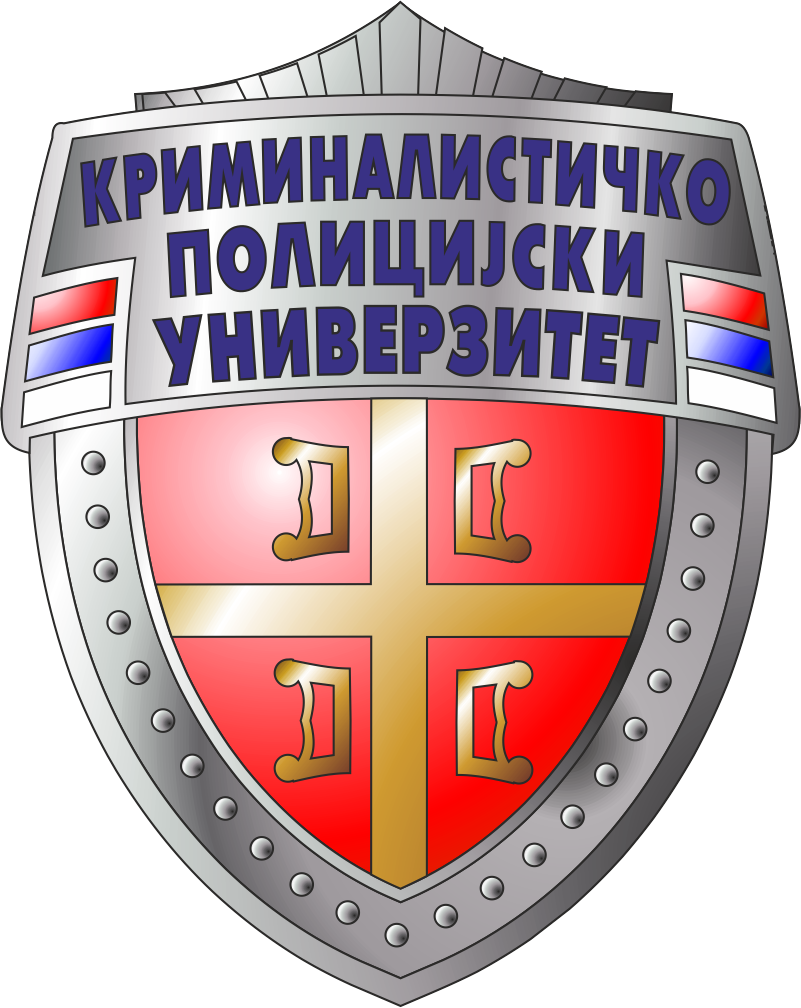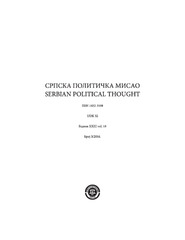Основна људска права полицијских службеника у светлу новог Закона о полицији
Fundamental human rights of police officers in the light of a new Law on Police
| dc.creator | Коларић, Драгана | |
| dc.creator | Марковић, Саша М. | |
| dc.date.accessioned | 2024-02-02T11:47:10Z | |
| dc.date.available | 2024-02-02T11:47:10Z | |
| dc.date.issued | 2016 | |
| dc.identifier.issn | 1452-3108 | |
| dc.identifier.uri | http://jakov.kpu.edu.rs/handle/123456789/1577 | |
| dc.description.abstract | The adoption of new Law on Police was preceded by a political decision to reform the public security systems and harmonize them with European achievements and values. The Law has been adopted in the spirit of European integrations, in the course of implementation of key reforms of the Republic of Serbia legislation in the area of security and justice. On March 01, 2012, The Council of Europe passed the decision to grant Serbia the candidate status for the EU. The Law came into force at the time when the last evaluation was made on fulfi lment of criteria for opening the most important chapters, Chapter 23 (Judiciary and fundamental rights) and Chapter 24 (Justice, freedom and security). Prior to its adoption the Law on Police was given a positive opinion by the Council of Europe, although the Ombudsman came forward with numerous remarks which were not adopted. After considering from various aspects the provisions related to special circumstances of termination of employment by the power of law and the consequences it may create in practice, we have given our opinion on their applicability and legal viability in the legal system of Serbia. When analysing certain provisions of the Law on Police, but also other legal regulations, we have established that they are not in harmony with each other. Disharmony refers both to the mutual provisions of the same law and to the provisions of various laws of the same legal power. Also, through the analysis of certain rulings of the European Court of Human Rights we have come to the conclusion that certain provisions of the Law are not harmonized with ratifi ed international and regional agreements. All this can lead to legal insecurity of those employed by the internal aff airs agencies. Moreover, through comparative law analysis we have come to the conclusion that foundation for the provisions defi ned by the Law on Police that has just been adopted cannot be found in legal regulations of other European countries either. At the end of every analysis we have given our opinion if the provisions of this Law are “adequately available, foreseeable and formulated with enough precision to provide, if required, advice to the employee to regulate his behaviour”. We have considered also if the right to private and family life, as well as the right to fair trial has been provided for those employed by the Ministry of Interior. It was necessary to establish all this in order to give evaluation if the Law on Police is harmonized with the Convention for protection of human rights and fundamental freedoms. Finally, taking into account all the above said, we are of the opinion that the right political decision of the Ministry of Interior management has been reached to postpone the implementation of certain provisions of the new Law in practice, regardless of the fact that the manner of their postponed implementation can be discussed, and the fact that there is the question of legal foundation of such a decision. Namely, consistent implementation of these provisions of the law could result in incalculable harmful consequences and violation of many fundamental human rights of those employed in the Ministry of Interior. The question is how much the adoption of contradictory regulations by the legislator and unlawful decisions by executive and judicial authorities will cost Serbia in the future. We are of the opinion that the 2016 Law must be thoroughly amended de lege ferenda in the same year when it was adopted, since the implementation of certain provisions can result in initiation of many legal procedures in which the defendant – the Republic of Serbia can be convicted of violation of fundamental human rights, and therefore suff er immense damage, both material and immaterial (reputation destroyed). | sr |
| dc.publisher | Београд : Институт за политичке студије | sr |
| dc.relation | Рад је резултат реализовања научноистраживачког пројекта „Криминалитет у Србији и инструменти државне реакције“ чији је носилац Криминалистичко-полицијска академија у Београду. | sr |
| dc.rights | openAccess | sr |
| dc.rights.uri | https://creativecommons.org/licenses/by/4.0/ | |
| dc.source | Српска политичка мисао = Serbian political thought | sr |
| dc.subject | the Law on Police | sr |
| dc.subject | European integration | sr |
| dc.subject | fundamental human rights | sr |
| dc.subject | court proceedings | sr |
| dc.subject | employees | sr |
| dc.subject | termination of employment | sr |
| dc.subject | legality | sr |
| dc.subject | constitutionality | sr |
| dc.title | Основна људска права полицијских службеника у светлу новог Закона о полицији | sr |
| dc.title | Fundamental human rights of police officers in the light of a new Law on Police | sr |
| dc.type | article | sr |
| dc.rights.license | BY | sr |
| dc.citation.volume | 23, 53 | |
| dc.citation.issue | 3 | |
| dc.citation.spage | 231 | |
| dc.citation.epage | 252 | |
| dc.identifier.rcub | https://hdl.handle.net/21.15107/rcub_jakov_1577 | |
| dc.identifier.fulltext | http://jakov.kpu.edu.rs/bitstream/id/6640/SM1.pdf | |
| dc.type.version | publishedVersion | sr |


